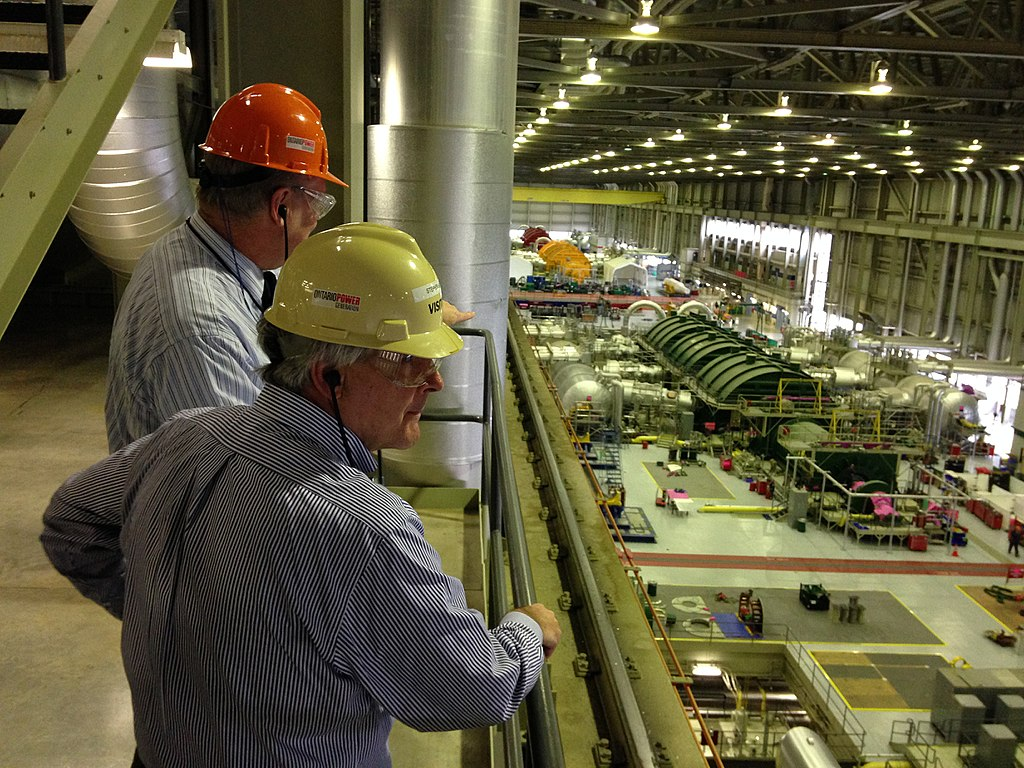An arbitrator has dismissed a union grievance alleging Ontario Power Generation (OPG) violated its collective agreement by placing inspection and maintenance technicians on shift work without declaring a campaign.
The Power Workers’ Union filed the grievance on behalf of technicians designated as “Campaign Workers,” arguing the employer was required to declare a campaign before assigning them to shift schedules. The arbitrator found the employer acted within its rights under the collective agreement.
The ruling clarified that while a negotiated mid-term agreement gives the employer flexibility to schedule campaign workers up to 60 hours per week during declared campaigns, it does not prohibit the employer from using regular shift scheduling provisions when no campaign is declared.
“These are sophisticated parties and if it was their intention to prohibit OPG from placing Campaign Worker I&M Techs on shift for non-campaign work, then they would have said as much in much more explicit words,” the arbitrator stated.
Background on campaign workers
The Advanced Inspection and Maintenance department at OPG performs non-destructive testing and inspections at the Pickering and Darlington nuclear generating stations. Much of this work occurs during outages when equipment is accessible for inspection within tight time windows.
In 2003, the parties negotiated a Campaign Mid-Term agreement that allowed certain technicians to be designated as Campaign Workers. Under the mid-term, then-current employees could voluntarily choose this designation, while all new inspection and maintenance technicians were automatically deemed Campaign Workers. Employees may revoke the status with 12 months written notice.
The mid-term provides management with the right to assign Campaign Workers to shift schedules on “designated campaigns” requiring up to 60 hours of scheduled work per week. In return, Campaign Workers receive additional earnings and are permitted to take time off at two hours off for one hour worked during non-campaign periods.
The parties also negotiated a letter of understanding defining campaign attributes. These include work conducted at one facility site, associated with customer requests for non-standard schedules, and readily identifiable work programs executed as continuous campaigns.
The condenser tube incident
In May or June 2024, the employer determined that reactor units 1 and 3 at Darlington were not operating efficiently, partly because the ball cleaning system was out of service. While cleaning the waterboxes, staff identified leaks in tubes in the condenser units. Each reactor unit has three condenser units containing two waterboxes that house cooling water flowing through approximately 11,000 tubes.
The employer determined the leaks required immediate repair to avoid forcing the units into outage, which would result in significant lost revenue. Management decided inspection and maintenance technicians would need to be assigned to shift work to complete the necessary repairs.
The employer and union met to discuss scheduling. The union suggested placing employees on an XYZ shift under an existing outage schedule letter of understanding, which provides more generous pay to incentivize volunteers and pays a bonus. The union agreed to help secure the required workers, proposing that if sufficient volunteers could not be found, the issue would be referred to arbitration.
The employer declined to use an outage schedule. The chief steward then offered to negotiate a new schedule consisting of six days of 10-hour shifts with rotating days and nights and a smaller outage bonus. The employer was not interested in this proposal either.
On June 24, 2024, the employer advised the union it was assigning 21 inspection and maintenance technicians to the ABCD shift to perform the work. Sixteen of the assigned technicians were Campaign Workers. Some assigned technicians did not receive the required shift change notice and were paid the penalty provided under the collective agreement.
The union filed the grievance the next day.
The union’s argument
The union argued that management cannot designate employees as Campaign Workers for campaign purposes and then reassign them as regular employees under Part D of the collective agreement for shift work. The union asserted this would undermine the purpose of the Campaign Worker Mid-Term, which it said was to displace the shift assignment provisions for Campaign Workers and provide a significantly less restrictive alternative.
The union contended the employer could have delayed the work and provided sufficient notice to declare a campaign, or negotiated a new schedule with a bonus to schedule the work immediately.
The arbitrator’s analysis
The arbitrator found the mid-term must be read in context of the bargain between the parties. That bargain permits the employer to schedule Campaign Workers more flexibly than the collective agreement allows, but only during designated campaigns.
“The Mid-Term only addresses shift work during a ‘designated campaign’, and it does not address scheduling of designated Campaign Worker employees during periods when there is no designated campaign,” the arbitrator noted.
The arbitrator determined that Campaign Workers remain covered by Part D of the collective agreement during non-campaign periods. Part D, Item 12.2 provides that technicians are primarily day workers, but the employer may assign them to shift work for up to eight months per year. The shift schedule is subject to a secret ballot vote by all technicians.
The arbitrator found the union’s interpretation would actually place more restrictions on management’s right to schedule work, contrary to the stated purpose of the mid-term providing greater flexibility.
“In my view, OPG has the right to declare a campaign and schedule I&M Tech Campaign Workers in accordance with the Mid-Term or not declare a campaign and schedule all I&M Techs in accordance with the Collective Agreement,” the arbitrator stated.
The arbitrator concluded the employer exercised its management rights fairly and reasonably. There was no dispute that delays could have resulted in an outage with significant costs. The employer chose to have the work performed under the shift schedule approved under Part D, Item 12 of the collective agreement.
The arbitrator found no violation of either the collective agreement or the mid-term and dismissed the grievance.
The hearing was held in Toronto on September 30, 2025.
For more information, see Ontario Power Generation v Power Workers’ Union, 2025 CanLII 101524 (ON LA).






